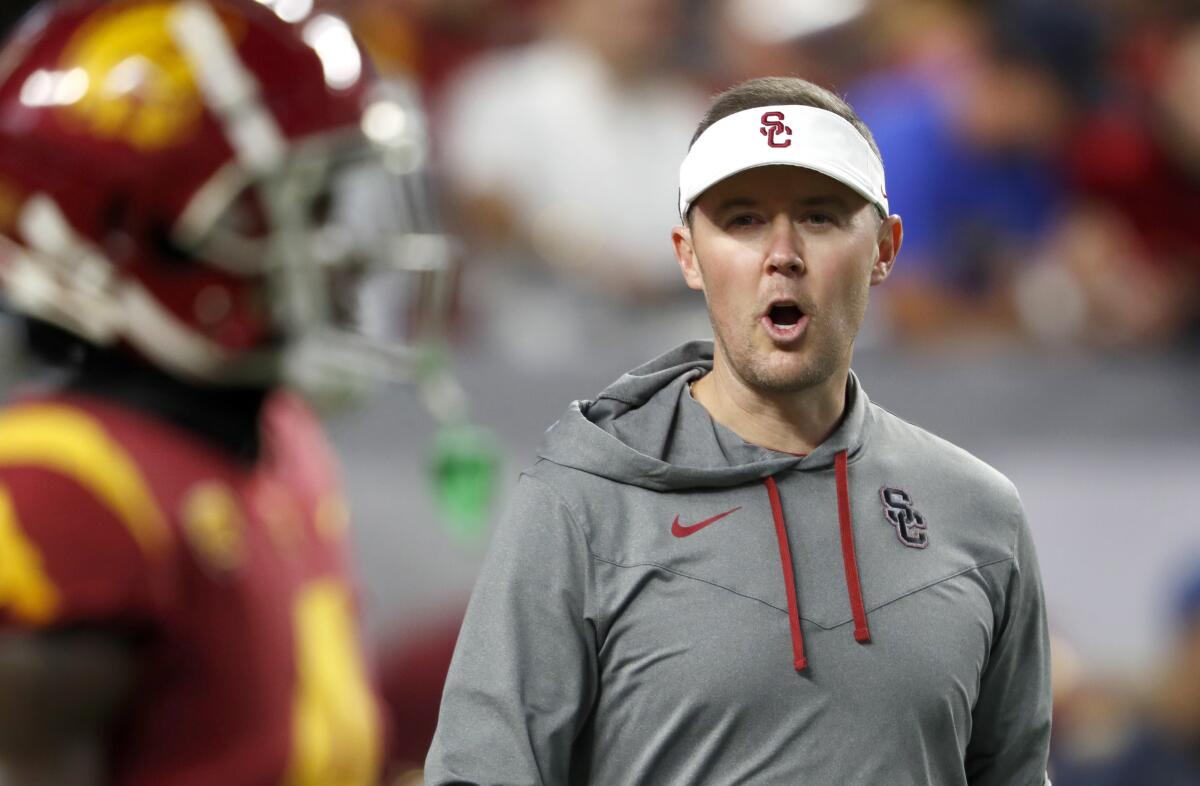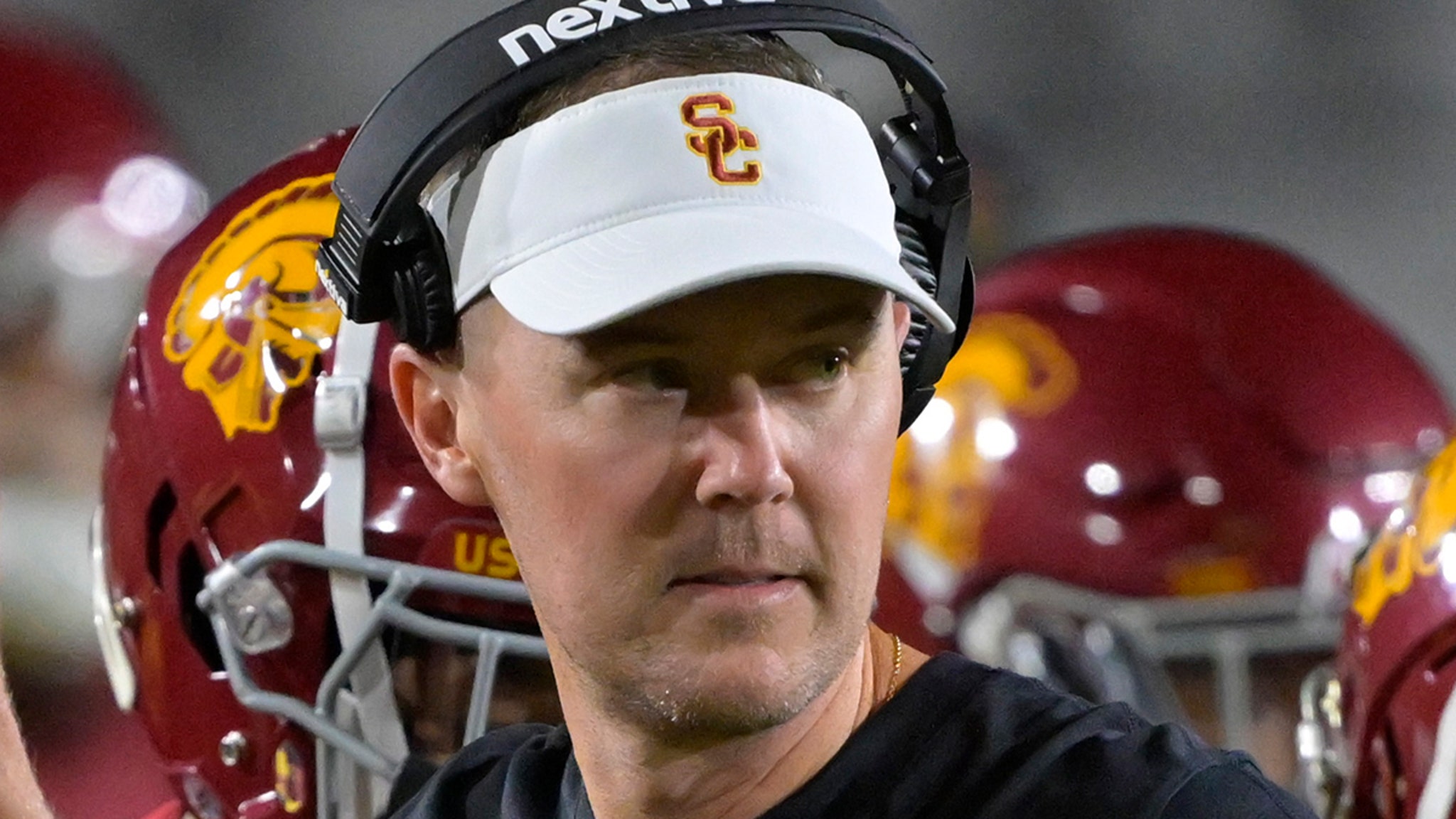College football has always been a world of its own, filled with tradition, rivalries, and drama. But in recent years, the landscape has been shaken up by new rules and regulations that aim to level the playing field. One of the most talked-about developments is the Lincoln Riley Act, a piece of legislation that has sparked heated debates among fans, players, and coaches alike. If you're wondering what all the fuss is about, buckle up because we're diving deep into this game-changing act.
Lincoln Riley, the mastermind behind the Oklahoma Sooners' dominance, has become a household name in college football circles. His innovative strategies and recruiting prowess have set a new standard for what it means to be a successful head coach. But the Lincoln Riley Act isn't just about one man's influence—it's about reshaping the future of college sports. In this article, we'll explore the ins and outs of the act, its implications, and why it matters to you.
As the debate rages on, fans are left wondering: Is the Lincoln Riley Act a step forward or a slippery slope? We’ll break it down for you, piece by piece, so you can decide for yourself. Stick around, because this is one story you won't want to miss.
Read also:Blood Moon Total Lunar Eclipse 2025 A Celestial Spectacle You Donrsquot Want To Miss
What Exactly is the Lincoln Riley Act?
The Lincoln Riley Act, or LRA for short, is a proposed set of regulations aimed at reforming the NCAA's approach to player compensation, recruiting, and governance. It’s not just another rule tweak; this act seeks to fundamentally change how college football operates. At its core, the act addresses the growing concerns about fairness and transparency in the system.
One of the key features of the Lincoln Riley Act is its focus on player rights. For too long, athletes have been treated as amateurs while generating billions in revenue for universities and conferences. The act proposes allowing players to profit from their name, image, and likeness (NIL) without jeopardizing their eligibility. Sounds fair, right? But as with any major reform, there are pros and cons to consider.
Why Was the Lincoln Riley Act Introduced?
The need for reform in college athletics isn’t new. For years, critics have argued that the current system exploits student-athletes, who often sacrifice their health and education for the sake of the game. The Lincoln Riley Act was introduced to address these concerns and create a more equitable environment for all parties involved.
Some of the key drivers behind the act include:
- Player Advocacy: Athletes deserve a fair share of the revenue they help generate.
- Transparency: The NCAA has faced scrutiny over its decision-making processes and lack of accountability.
- Modernization: The act aims to bring college sports into the 21st century by aligning rules with current societal values.
The Key Provisions of the Lincoln Riley Act
Now that we’ve covered the basics, let’s dive into the specifics. The Lincoln Riley Act includes several groundbreaking provisions that could reshape the college football landscape. Here’s a closer look at what’s on the table:
1. Name, Image, and Likeness Rights
One of the most controversial aspects of the act is its stance on NIL rights. Under the current NCAA rules, athletes are prohibited from earning money based on their celebrity status. The Lincoln Riley Act seeks to overturn this restriction, allowing players to sign endorsement deals, monetize social media platforms, and even start their own businesses.
Read also:Tyson Rape Lawsuit Dropped The Untold Story Behind The Case
This provision has been hailed as a victory for athlete empowerment, but it also raises questions about how it will impact team dynamics and recruiting. Will star players command higher prices, creating a new form of imbalance in the sport?
2. Enhanced Player Protections
Safety and well-being are top priorities under the Lincoln Riley Act. The legislation calls for stricter regulations on practice hours, medical care, and mental health support. This is particularly important given the physical toll that college football takes on its participants.
Additionally, the act proposes creating an independent oversight body to ensure compliance with these standards. This move is designed to hold schools accountable and prevent abuse of power.
3. Revenue Sharing
Another game-changing provision is the concept of revenue sharing. The Lincoln Riley Act suggests that a portion of the revenue generated by college football programs should be distributed among players. While the exact percentage is still up for debate, this idea has sparked intense discussions about the future of amateurism in sports.
How Does the Lincoln Riley Act Affect Recruits?
Recruiting is the lifeblood of college football, and the Lincoln Riley Act has the potential to transform this process. With the introduction of NIL rights and revenue sharing, top recruits may have more leverage when negotiating with schools. This could lead to a shift in power dynamics, where athletes hold more sway over where they choose to play.
Moreover, the act’s emphasis on player protections could make certain programs more attractive to recruits who prioritize long-term health and wellness. In a world where every decision counts, these changes could have a ripple effect across the entire landscape.
Will the Lincoln Riley Act Create a New Breed of Superprograms?
Some experts argue that the Lincoln Riley Act could lead to the rise of "superprograms"—elite schools with the resources to offer the most lucrative deals to top recruits. While this might sound like a dream scenario for fans of powerhouse teams, it could also exacerbate existing inequalities in the sport.
On the flip side, smaller schools may find new opportunities to attract talent by offering unique benefits that resonate with specific types of players. The key will be finding a balance that promotes competition without sacrificing fairness.
What Do the Critics Say?
Of course, no piece of legislation is without its detractors. Critics of the Lincoln Riley Act argue that it could undermine the integrity of college sports by blurring the line between amateur and professional athletics. They worry that allowing players to profit from their fame could lead to corruption and undermine the educational mission of universities.
Others point out that the act doesn’t go far enough in addressing systemic issues like racial inequality and socioeconomic disparities within the sport. While the legislation focuses on player rights, some believe it fails to tackle deeper-rooted problems that continue to plague college athletics.
Will the Lincoln Riley Act Survive Legal Challenges?
As with any major reform, the Lincoln Riley Act is likely to face legal scrutiny. Opponents may challenge its constitutionality, arguing that it violates antitrust laws or infringes on the rights of institutions. The outcome of these battles will play a crucial role in determining the act’s ultimate fate.
For now, the act remains in the proposal stage, but its proponents are optimistic about its chances of becoming law. If passed, it could set a precedent for future reforms in college sports.
Real-World Impacts of the Lincoln Riley Act
While the Lincoln Riley Act is still in its infancy, we can already see glimpses of its potential impact. Some schools have begun implementing NIL policies on their own, giving athletes a taste of what the future might hold. These early adopters could serve as case studies for how the act might play out on a larger scale.
Meanwhile, the NCAA continues to grapple with its own reforms, trying to stay ahead of the curve as the landscape evolves. The organization’s response to the Lincoln Riley Act will be a key indicator of whether it’s willing to embrace change or cling to the status quo.
How Will Fans React?
Fans are divided on the Lincoln Riley Act, with some hailing it as a long-overdue reform and others viewing it as a threat to the purity of college sports. Social media has become a battleground for these debates, with passionate arguments on both sides.
Ultimately, the success of the act will depend on whether it can win over the hearts and minds of the people who make college football what it is: the fans.
Conclusion: Is the Lincoln Riley Act the Future of College Football?
The Lincoln Riley Act represents a bold step toward reforming college athletics, but its success is far from guaranteed. While it offers exciting possibilities for player empowerment and fairness, it also raises important questions about the future of amateur sports. As the debate continues, one thing is clear: the college football landscape is changing, and the Lincoln Riley Act could be the catalyst that tips the scales.
So, what’s next? Stay informed, stay engaged, and most importantly, stay passionate about the game. And don’t forget to share your thoughts in the comments below. Together, we can shape the future of college football—one play at a time.
Table of Contents
- Lincoln Riley Act: The Game-Changer in College Football
- What Exactly is the Lincoln Riley Act?
- Why Was the Lincoln Riley Act Introduced?
- The Key Provisions of the Lincoln Riley Act
- Name, Image, and Likeness Rights
- Enhanced Player Protections
- Revenue Sharing
- How Does the Lincoln Riley Act Affect Recruits?
- Will the Lincoln Riley Act Create a New Breed of Superprograms?
- What Do the Critics Say?
- Will the Lincoln Riley Act Survive Legal Challenges?
- Real-World Impacts of the Lincoln Riley Act
- How Will Fans React?
- Conclusion: Is the Lincoln Riley Act the Future of College Football?


